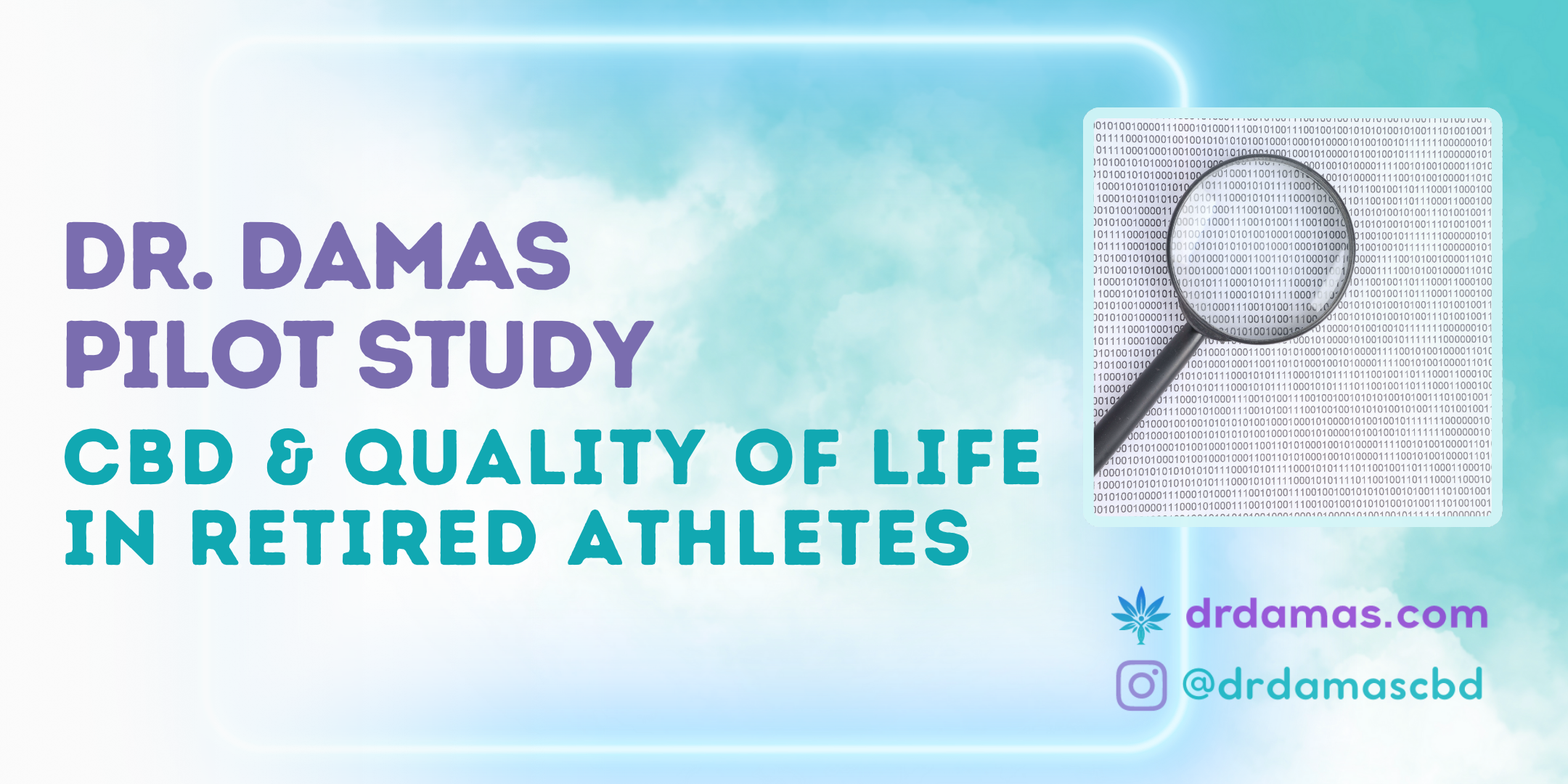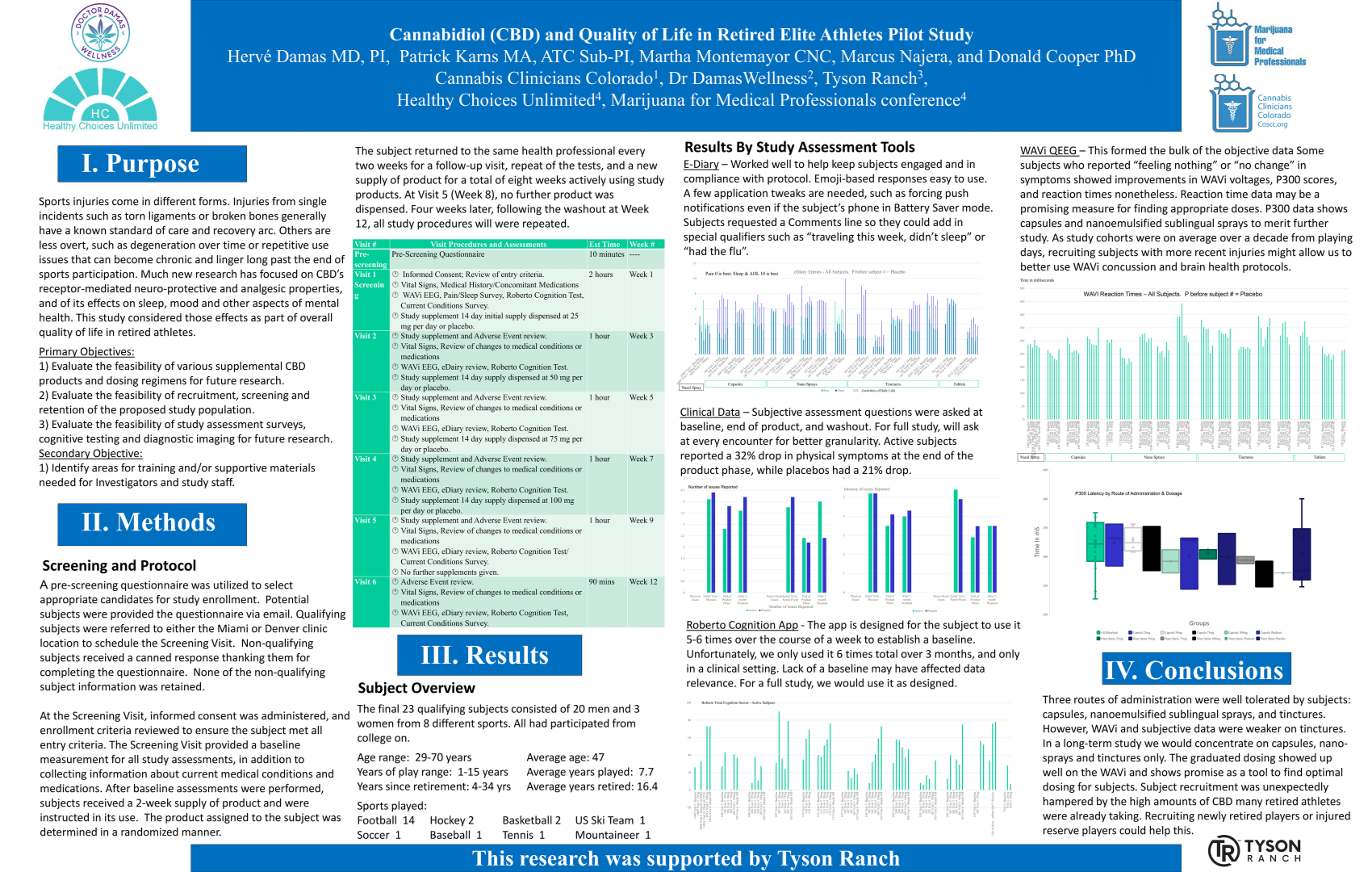The Cannabis Clinical Outcomes Research Conference
Background: Cannabis Clinicians Colorado conducted a Pilot Study on CBD and Quality of Life in Retired Elite Athletes. The study looked at a variety of CBD routes of administration monitored by four data points in a small cohort. As pilot studies investigate feasibility rather than efficacy, this presentation summarizes the data and offers potential areas for further study.
Methods: A placebo-controlled study of cannabidiol (CBD) as a supplement to current therapies in retired elite level athletes with medical issues resulting from their competitive years. 24 subjects received a 60-day supply of either an escalating measured-dose daily CBD supplement or a placebo, in one of six possible routes of administration: capsule, sublingual tincture, sublingual tablet, sublingual nano-emulsified oil, or nasal spray. Subjects underwent twice-monthly monitoring by WAVi QEEG scan, Roberto cognition testing, clinical observation, and e-diary Quality of Life assessment surveys during the study.
Conclusions: The data is promising enough to warrant further study. This was an un-funded study using donated product and a “throwing spaghetti at the wall” approach to routes of administration. Cannabis therapies are well known to fall outside of the conventional medical model of a single chemical compound having a marked effect at a measured dose, so a wide rate of variation was expected.
Subjects reporting no results no matter what the dosage, or conversely, reporting adverse psychoactive effects with CBD alone, fit within the investigator’s clinical experience. Interestingly, many subjects who reported feeling nothing still showed changes on the WAVi QEEG that placebo subjects did not.
Of subjects who reported feeling better, the 50 mg per day dose showed the best results with fewest side effects. Taking more did not result in additional improvements. This may be an area for further study. A surprising find was Quality of Life improvements were significantly more pronounced with capsules than other product types. A review of the data tools used offered useful information and subjects offered suggestions on how to improve them.
Co-authors: Martha Montemayor1, Patrick Karns2
1Healthy Choices Unlimited, 2Rocky Mountain Laser College




